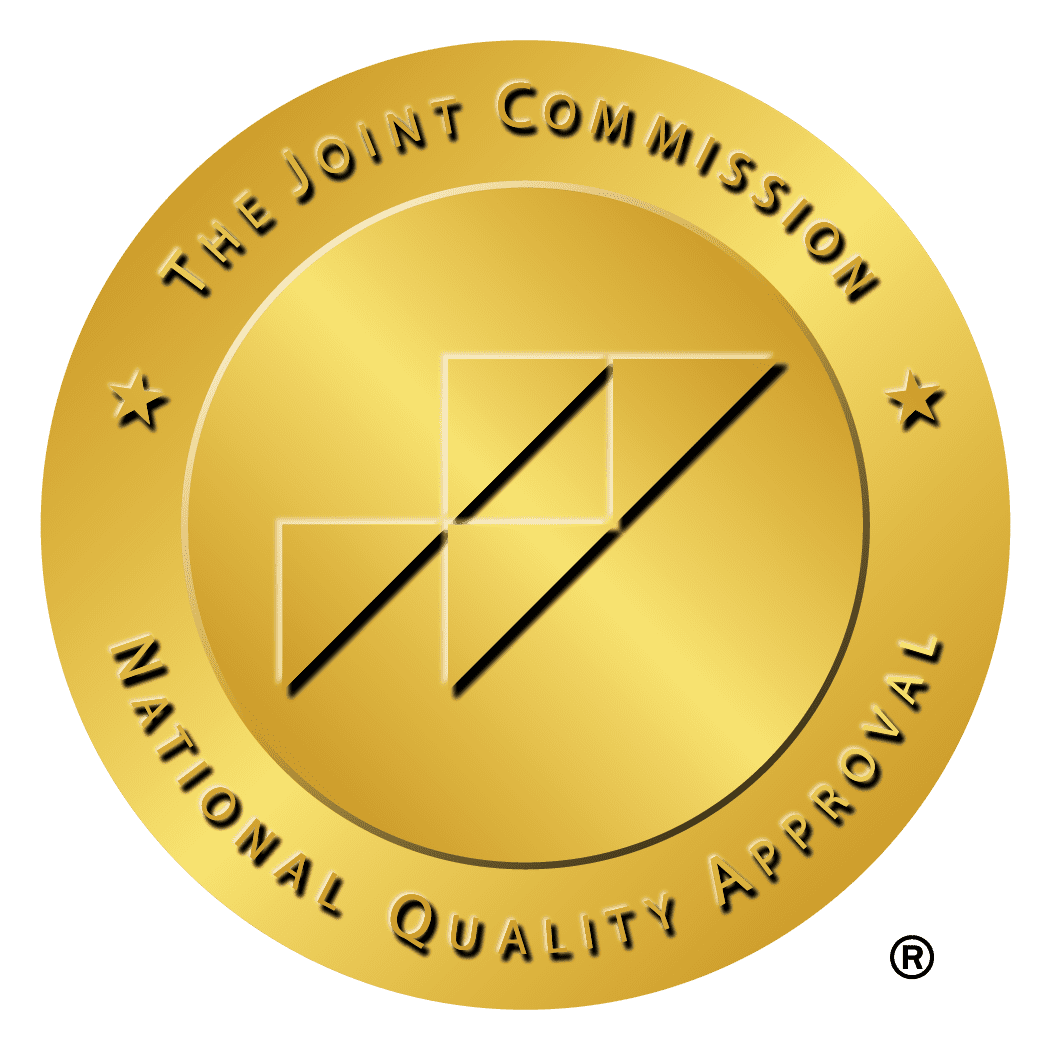Addiction can be hard to understand if you’ve never experienced it or never witnessed someone close to you experience it. What seems like something that could never happen to you can slowly spiral into a dependence on substances that slowly consumes one’s mind, finances, and relationships, hurting not just the addict, but the loved ones in the addict’s life as well. You may ask yourself what would make someone go down that path which is why today we are here to clarify some factors that make people particularly susceptible to going down the path of addiction.
Genetic Predisposition
We first want to make it incredibly clear that addiction is a disease. While many may think addiction is a choice, addiction is much more nuanced. Substance use disorders are very complex in the way they attack the brain and body. It’s been suggested that roughly 50% of individuals who are addicted to drugs have genetic factors that have contributed to that addiction. Understanding the human genome is still relatively new in the grand scheme of studying medicine, but even so, findings thus far have a strong indication that genetic factors are an important determinant of addiction.
To provide some context on these findings, you must first know that all cells in the body are composed of DNA. Human genome studies (an examination of one’s entire DNA) have found that slight variations in DNA, referred to as single-nucleotide polymorphisms (SNPs), can indicate susceptibility to disease. Essentially, if variations (SNPs) appear more often in people who have a certain disease when compared to those who do not, there is a larger likelihood that this genetic variation has an impact on the formation of this disease.
While genetic factors are not everything that contributes to addiction and should not be treated as such (history of family addiction does not need to be a self-fulfilling prophecy or inevitable outcome for someone), understanding how genetic factors can play a role in addiction can be key to understanding and preventing addiction. We recommend that if you have a history of addiction in your family, you have a discussion with those coming of age so they are prepared for the risks.
Environmental Factors
As mentioned, genetic factors are not everything when it comes to addiction. Oftentimes, the environment one grows up in can have a tremendous impact on the onset of addiction. When one grows up or grows into an environment that is impoverished or is not regularly meeting someone’s basic needs, there is a serious lack of opportunity present. Lack of opportunities can lead to less safety, higher crime rates, and the survival of day-to-day more difficult.
It’s no surprise that in a challenging life one may turn to substances as a form of escapism to break away from this difficult reality. In some areas, selling drugs may be an avenue individuals take in an attempt to get out of poverty. While this can be hard to understand if you’ve never been in the situation and understand that this is illegal, try to put yourself in the shoes of someone who has never known anything besides intense poverty. When you are regularly struggling to put food on the table and provide for yourself and your family, you may begin to understand that one would be willing to try anything to improve their situation, even if the consequences could be worse.
Also important to note, is that children are often mirrors of those who raise them. Witnessing a parent or close family member regularly consume drugs or alcohol can be a significant influence on one’s perception and future consumption of these substances. You don’t know what you don’t know and when children witness regular drug consumption they may not realize this behavior is abnormal or has intense adverse effects.
Adverse Childhood Experiences
Children are mirrors of those who raise them, but adverse childhood experiences can also be present in one’s childhood environment and a factor in future addiction. Adverse childhood experiences can be a result of many different situations within one’s homelife ranging from divorced parents, neglect, abuse, sexual violence, criminal activity, mental illness, and more. Childhood maltreatment has the power to change the way your brain functions on a chemical level, most specifically, altering brain white matter which may pre-dispose people who faced maltreatment in childhood to depression and substance abuse disorders.
Twin Studies
Time and time again, studies that have examined substance abuse in twins have found that both environment and genetics have a significant impact on the likelihood of addiction. In a Harvard study, they found that there were “significant influences by genetic, shared environmental, and unique environmental factors on the abuse of illicit substances.” A Virginia Commonwealth study finds similar results, while also factoring in mental health disorder predispositions as well, suggesting that the two disorders may be influenced by common genes.
Developmental Factors
Rather than seeing addiction as a black and white topic that is present one day and gone the next, a growing study of research is beginning to look at addiction from a more developmental standpoint, growing with the stages of life. This is particularly true in the event of mothers who abuse substances during their pregnancies or early into infancy. This type of consumption surely influences their baby in a very significant way. Not only this, but adolescence is often the time that young people begin experimenting with drug and alcohol abuse, more often than not behind closed doors without parental knowledge.
Consuming drugs during adolescence often increases the risk of addiction as brains are not fully formed and can be increasingly altered by substance use at such a young age. Adolescents may be especially inspired to use substances when they come from a background of neglect or maltreatment since they may have lacked a figure to turn to for guidance or watched the figure use drugs themselves. All of these factors together suggest that substance use disorders may be developmental as a byproduct of early caregiving and exposure to adverse events.
Attachment
While we’ve touched upon attachment theory in past articles, we felt it was important to mention again. Attachment styles in psychology describe how we interact with the people in our lives, sometimes with walls up high to guard us, sometimes with little-no boundaries, some with fear, and some with comfortability and trust. While attachment theory is often applied to person-person relationships, it is equally as important to consider how this looks with one’s relationships with substances.
Attachment is formed during one’s childhood as a result of parenting amongst other factors in one’s upbringing. Those who are particularly avoidant, dismissive, or fearful, might be a bit more pre-dispositioned to substance abuse as opposed to someone who is securely attached.
One study suggests those who lack secure attachment may use substances as a form of “self-medication,” as an attempt to compensate for lacking attachment strategies. To learn more about your attachment style and how this may impact your relationships with others and with substances, we’d recommend taking a short quiz here.
Personality Traits
By nature, some personalities may be more prone to addiction. Personality types vary considerably and some individuals who are outgoing or considered “life of the party” types may engage more in risky behaviors compared to others. On the opposite end of the spectrum, there may be people who are shy and in social settings might be apprehensive to say no to peer pressure. Understanding the parts of your personality that may make you more or less likely to engage in substance usage will help you better combat it. Working through your common thought or behavior patterns with a therapist, professional counselor, or trusted friend/family member can help you make changes if you would like to work on the parts of your personality that lead to addiction.
Culture
In America, there’s a pretty significant drinking culture present. Drinking is embedded into many things in day-to-day life, whether this is casually drinking at night, in social settings, as a thing to do with friends or anything in between. In some cities, drinking cultures are much more prevalent than in others, such as Charleston which boasts many breweries, bars, nightlife, and tourism which can make it hard to escape. Aside from cities, certain groups of people are more exposed to drinking than the general population, such as military or college students. If you are in a location that is drinking-heavy or is part of a community that drinks more than the average person, this may make you more susceptible to addiction as you begin to normalize how often you drink.
Social Factors
With drinking being largely embedded into the culture, there are certainly social settings that may make people more susceptible to partaking. Whether you are influenced by peer pressure or social acceptance, you may find yourself not wanting to do drugs or drink but end up engaging regardless. Sometimes “peer pressure” can also be pressure you put on yourself for the perceived judgment you feel for not partaking in drinking or drug use. Creating boundaries for yourself in what you are willing to do and not do will be helpful in combatting any kind of pressure.
Sensation Seeking
While some may feel pressure for social acceptance, others may seek out drugs or drinks purely for the thrill of doing so. Since these substances alter our natural state of being in one way or another, people can often find them fun or exhilarating and a step out of monotonous life. For someone looking to get a thrill and feel less like their natural state, they will be a bit more likely to participate in drug usage for the sensation-seeking effect.
Mental Health Disorders
We know that substances can alter our state of mind, but what may be surprising is that some substances can offset the effects of mental health disorders which may encourage those who are suffering to engage with drugs. While it may offset the mental health disorder temporarily, it does not take away from larger issues which should be overseen by a professional psychiatrist who can prescribe and monitor the appropriate medicine to treat the illness.
On a similar note, some individuals may partake in drug usage that simply numbs themselves as opposed to offsetting mental health effects. Nonetheless, this can still be an issue and very quickly lead to addiction should the sufferer prefer the feeling of numbness as opposed to the mental illness effects.
Drug Characteristics and Onset of Addiction
For all of the aforementioned reasons in this article, many drug characteristics provide some sort of perceived value to the people who use them. Whether it’s social acceptance, offsetting mental health effects, providing a sense of numbness, sensation, or anything else, there is a reason people use drugs in the first place. Despite whatever appeal drugs may have, they are dangerous and can always lead to a deep, dark path even if you perceive it to be a one-time use that is harmless. By engaging once, you may continue to chase a high not realizing how intense and adverse the side effects or consequences of your actions are over time, then before you know it, you are addicted.
If any of these points resonate with you or make you think of someone you know who may be suffering from addiction, we at Transcendence Treatment Center want you to know that we are here for you in any way you need. We are a resource for individuals who are struggling and hope to provide comfort and holistic healing to whoever we can. If you are looking to receive support today, take the first step and call us at 854-222-3773.



